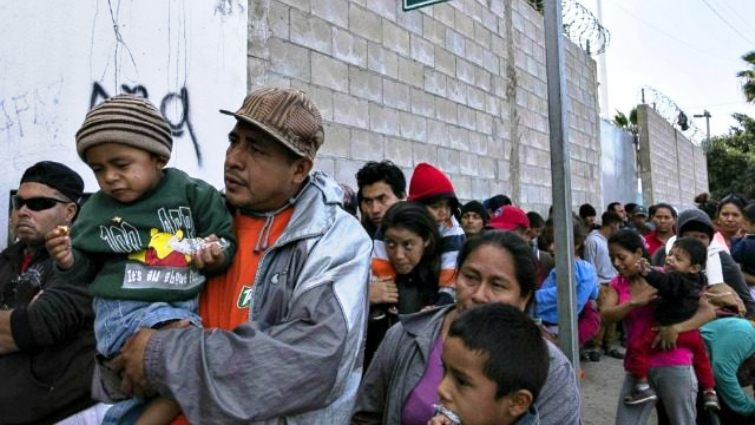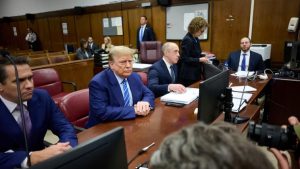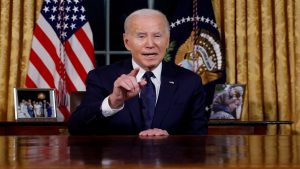Jose Guardado, 42, a farmer, said he could not bear returning home to Honduras without his 14-year-old son, Nixon, who remained somewhere in US detention.
He wished that he had crossed the US-Mexico border with Nixon at an official US port of entry on June 13, he said, saying he failed to do so because he was told it had closed for the day.
Instead, he followed a guide that night through a storm across the Rio Grande, only to be caught by US Border Patrol agents and separated from his son.
Guardado was moved in handcuffs between six different detention centers in 10 days, he said, adding that he had been unable to locate Nixon.
Guardado said he was not US seeking asylum, only a better opportunity for his son.
His wife, Elizabeth Cruz, collapsed against a wall while he spoke of Nixon, sobbing hard into a T-shirt that she pulled over her face.
Before he was deported, Guardado said officials gave him a scrap of paper with a hotline for missing children. No one answered the listed phone number, he said.
US immigration agents handed Honduran asylum-seeker Melvin Garcia his few possessions and a small blue wallet belonging to Daylin, the 12-year-old daughter they had taken from him as he was trying to cross the border.
Uncertain when he might see her again, after being barred from the United States by his deportation order, Garcia, 37, is one of an uncertain number of parents sent home without their children under the Trump administration.
Frustrated that immigrants and asylum seekers from Central America were often released into the United States to await court hearings, US President Donald Trump implemented a “zero tolerance policy” in April seeking to prosecute all adults who crossed the US-Mexico border illegally, including those traveling with children. This dramatically increased the number of families separated at the border.
Hours after he arrived back in Honduras alone on June 21, Garcia slumped in a concrete shack in a section of the town of Choloma controlled by Barrio 18, one of two gangs whose death threats he said he fled in March with Daylin.
Tortured with thoughts that he might not see Daylin for years, Garcia clutched at her wallet. Whenever he recalled his desperate search for her in US detention, he broke down, tears streaming off his face.
Trump reversed course last week, ordering an end to the family separations. But the government still had 2 047 children in custody as of Tuesday, Health and Human Services Secretary Alex Azar told a US Senate committee, adding that reuniting them would be hard.
A federal judge ruled late on Tuesday that the government must reunite families that were split up after entering the country but immigration lawyers warned that the situation was tremendously complicated for parents who were sent home without their children.
Reuters tracked at least six Central American migrants last week after they were deported while their children remained in US shelters or, as in the case of Garcia’s daughter, in the custody of sponsors.
Garcia’s deportation order, seen by Reuters, was issued by a Houston immigration judge on May 23. It does not say how long he is barred from returning to the United States, but the US Department of Justice has said people deported in such cases are typically excluded from re-entry for five years or more.
After his wife and two other children left for the United States three years ago, Garcia said Daylin became his whole world.
Before seeking asylum in the United States, Garcia worked as a bus driver in one of the most violent countries in the Americas. He said colleague after colleague on the bus routes was shot dead for failing to pay the “war tax” demanded by Barrio-18 and the rival Mara Salvatrucha or MS-13 gang.
He fled with Daylin after someone pressed a gun to his own head.






